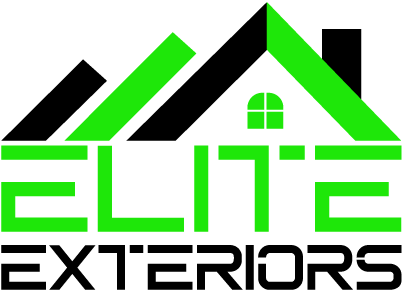A well-built, spacious deck is the quintessential addition to any home. It not only serves as the perfect spot for outdoor entertainment but also expands your living space, maximizes your property, and adds significant value to your home. But did you know that choosing the right material for your deck is a very important decision, as it influences far more than just aesthetics? There are various factors to consider when choosing your deck’s material—factors that significantly impact its longevity, feel, and the quality of every moment spent there.
Today, the array of decking materials available is more varied than ever before, offering an exciting range of possibilities for construction and design. Among these, natural wood and PVC stand out as two common options. As we delve into the nuances of each, we’ll discover how the right choice can resonate with your vision and enhance your outdoor living for years to come.
When selecting decking materials, it is essential to understand the fundamental differences in material composition.
PVC decks are made entirely from polyvinyl chloride, a synthetic plastic known for its durability and resilience. This material is often enhanced with additives to improve its resistance to UV rays and increase its overall longevity, ensuring a deck that maintains its appearance and structural integrity. The synthetic nature of PVC allows for a wide range of designs and colors, providing a versatile solution for any aesthetic preferences.
Wood decks are traditionally crafted from an array of natural lumber, offering a variety of choices to suit different preferences and requirements. Common types include softwoods like cedar and pine, known for their affordability and ease of use, and dense tropical hardwoods such as teak, ipe, and mahogany, prized for their exceptional durability and distinctive appearance. Wood decks vary greatly not just in durability and maintenance needs but also in color, grain, and texture, offering a unique aesthetic appeal that enhances the natural beauty of any outdoor space.
Durability
In terms of durability, PVC decks have a robust resistance to rot, mold, and insects. They maintain their integrity over time and will not warp, crack, or splinter, even under varied weather conditions. Wood decks, on the other hand, are more vulnerable to environmental damage like rot, mold, and insects, especially if not regularly treated and maintained. While woods like cedar and hardwoods offer improved resistance, they still need consistent upkeep to preserve their condition and appearance.
Maintenance
PVC decks offer a low-maintenance solution, needing only occasional cleaning with soap and water, with no need for staining, sealing, or painting. Conversely, wood decks demand more upkeep, requiring regular staining, sealing, or painting to uphold their appearance and durability. Without diligent care, wood decks are prone to quick degradation, making their maintenance a crucial consideration for their longevity.
Aesthetics
Aesthetically, PVC decks provide a versatile array of colors and styles, with modern advancements allowing them to closely mimic the look of natural wood. This gives homeowners the flexibility to customize their outdoor space to their tastes. In contrast, wood decks boast a timeless, natural beauty that many find appealing. The unique grain patterns and color variations of wood offer a warm aesthetic that can greatly enhance the charm and character of any outdoor setting.
Cost
In terms of cost, PVC decks often present a higher initial expense compared to wood; however, their minimal maintenance requirements can lead to long-term savings and offset the upfront investment. On the flip side, while wood decks may be less costly to install, they tend to accumulate higher maintenance expenses over the years, particularly with premium woods like cedar or tropical hardwoods, which can significantly increase the cost of ownership.
Installation
When it comes to installation, PVC decks are known for being lighter and more user-friendly, allowing for a process similar to that of wood but typically with less effort. They can be easily cut and assembled, making the installation relatively straightforward. Wood decks, however, call for traditional carpentry tools and techniques, with the installation process varying in complexity depending on the wood’s density. Hardwoods, for instance, can be challenging due to their density, requiring more time and specialized tools to install properly.
Lifespan
PVC decks typically boast a long lifespan, with many lasting 25–30 years or more, and brands like TimberTech’s Advanced PVC even promise upwards of 50 years with proper care. In contrast, the lifespan of wood decks usually range between 10 and 20 years, and is heavily dependent on the wood type and maintenance. Regular care is crucial for wood decks to reach their full lifespan potential, with more durable woods potentially extending this timeframe.
Comfort and Safety
For comfort and safety, PVC decks are a favorable choice, as they do not splinter and are generally comfortable to walk on, providing a safer surface for bare feet and pets. However, one consideration is that they can become quite warm when exposed to direct sunlight. Wood decks, while offering a natural underfoot feel, may pose a safety risk over time as they can splinter, requiring regular sanding to maintain a smooth surface. They have the advantage of staying cooler in the sun compared to PVC, making them a comfortable option in warmer climates.
Repair and Replacement
In the context of repair and replacement, PVC decks may require the entire replacement of damaged boards, potentially leading to slight mismatches if fading has occurred or if the original style is unavailable. On the other hand, wood decks offer a more straightforward approach to repairs, allowing individual boards to be replaced as needed. With proper staining and treatment, these new boards can often be integrated seamlessly, maintaining the deck’s cohesive appearance and extending its life without the need for extensive overhauls.
When choosing the right deck for your outdoor space, deciding between PVC and wood is a significant factor. Each material offers its own benefits tailored to different preferences and lifestyles. While wood provides a natural charm and traditional aesthetic, PVC stands out for its durability, low maintenance, and long lifespan. As you consider the ideal backdrop for your outdoor retreat, the practical and long-lasting qualities of PVC subtly present it as a smart choice, promising a beautiful and functional space for many years to come.
Choosing a professional deck contractor is crucial to ensuring your deck is not only durable but also visually appealing and harmoniously integrated with your home’s overall aesthetics. As a Certified Pro Gold Installer for TimberTech, Elite Exteriors is both reliable and experienced when it comes to crafting and installing TimberTech Composite and PVC Decks. Our experience also extends to custom wood decks, ensuring a wide range of options tailored to your preferences. No matter what type of deck you choose, Elite Exteriors will meet the highest standards of quality and design.
We stand as your premier choice, dedicated to turning your vision into reality with precision and care. Our comprehensive design process includes complimentary 3D renderings, ensuring your new deck exceeds your expectations. Our commitment to surpassing local and international building codes guarantees not just a stunning deck but also lasting peace of mind. Don’t just dream about your ideal outdoor retreat—contact Elite Exteriors today and take the first step towards making it a reality.


